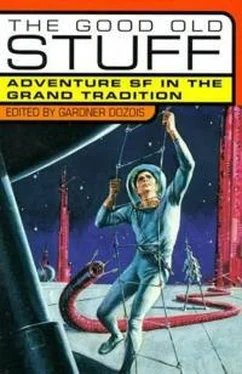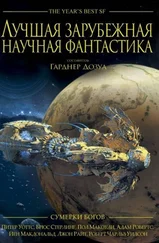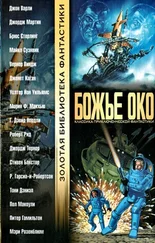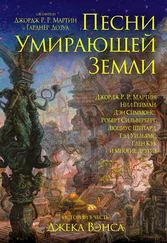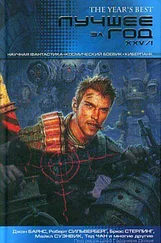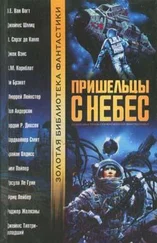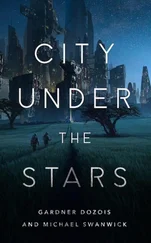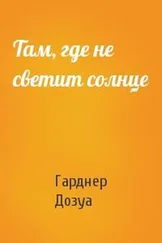Гарднер Дозуа - The Good Old Stuff
Здесь есть возможность читать онлайн «Гарднер Дозуа - The Good Old Stuff» весь текст электронной книги совершенно бесплатно (целиком полную версию без сокращений). В некоторых случаях можно слушать аудио, скачать через торрент в формате fb2 и присутствует краткое содержание. Год выпуска: 1998, ISBN: 1998, Издательство: St. Martin's Griffin, Жанр: Фантастика и фэнтези, на английском языке. Описание произведения, (предисловие) а так же отзывы посетителей доступны на портале библиотеки ЛибКат.
- Название:The Good Old Stuff
- Автор:
- Издательство:St. Martin's Griffin
- Жанр:
- Год:1998
- ISBN:0-312-19275-4
- Рейтинг книги:3 / 5. Голосов: 1
-
Избранное:Добавить в избранное
- Отзывы:
-
Ваша оценка:
- 60
- 1
- 2
- 3
- 4
- 5
The Good Old Stuff: краткое содержание, описание и аннотация
Предлагаем к чтению аннотацию, описание, краткое содержание или предисловие (зависит от того, что написал сам автор книги «The Good Old Stuff»). Если вы не нашли необходимую информацию о книге — напишите в комментариях, мы постараемся отыскать её.
The Good Old Stuff — читать онлайн бесплатно полную книгу (весь текст) целиком
Ниже представлен текст книги, разбитый по страницам. Система сохранения места последней прочитанной страницы, позволяет с удобством читать онлайн бесплатно книгу «The Good Old Stuff», без необходимости каждый раз заново искать на чём Вы остановились. Поставьте закладку, и сможете в любой момент перейти на страницу, на которой закончили чтение.
Интервал:
Закладка:
The Good Old Stuff
Edited by Gardner Dozois
Adventure stories have been one of the mainstays of science fiction since its earliest days, and this terrific anthology assembles sixteen of the greatest ever written. Included here are stories from a stellar array of talents: Brian W. Aldiss, Poul Anderson, Leigh Brackett, L. Sprague de Camp, Gordon R. Dickson, C.M. Kornbluth, Ursula K. Le Guin, Fritz Leiber, Murray Leinster, H. Beam Piper, James H. Schmitz, Cordwainer Smith, James Tiptree, Jr., Jack Vance, A.E. van Vogt, and Roger Zelazny.
These stories were all written in the heyday of adventure SF, from 1940 through the 1960s, and they first appeared in such magazines as Astounding , Galaxy , Future Fiction , and Startling Stories . Many have not been in print for years. All of them retain the breathtaking sense of wonder that is science fiction's feature characteristic. From the seas of Venus to the farthest reaches of space, these stories will take you places you've never dreamed before!
I love good old-fashioned space opera! give me a starship and a blaster rifle or a three-eyed alien any day! If you like space opera, too, then this book is for you! Gardner Dozois, one of the premier science fiction editors has put together a collection of classic sci-fi adventure stories from the ‘50s and 60s written by some of the true masters off science fiction, that is a must read for any sci-fi fan.
So strap in and get set to blast off for high sci-fi adventure!
For Janet Kagan and Bob Walters—who like the good old stuff.
Acknowledgements
I would like to thank the following people for their help and support on this project: Susan Casper, Janet Kagan, Barry N. Malzberg, Darrell Schweitzer, Virginia Kidd, Vaughne Lee Hansen, Kirby McCauley, Kay McCauley, Ralph M. Vicinanza, Chris Lotts, Richard Curtis, Ginjer Buchanan, Jennifer Uram, Mark McCloud, Eleanor Wood, Ashley D. Grayson, Dan Hooker, Gordon R. Dickson, David W. Wixon, Poul Anderson, Brian W. Aldiss, L. Sprague de Camp, Catherine Crook de Camp and, of course, special thanks to my own editor on this project, Gordon Van Gelder.
Preface
We say, in short, that we grew from the pulps to Astounding , and from Astounding into our present enlightenment. These are lies.
We read the pulps and ASF simultaneously and with equal voracity, they were two sides of the one coin, and our special relationship with the pulps was more intriguing, racier, and in some ways more genuine, while our relationship with Astounding was respectable. And our present enlightenment, which will no doubt dim in the hindsight of years to come, derives not linearly from ASF but from a complex action of the love/hate relationship between the pulps and “modern science fiction” within ourselves.
—Algis Budrys, The Magazine of Fantasy & Science Fiction , January 1977
Science fiction can be a window on worlds we’d never otherwise see and people and creatures we’d never otherwise know, it can provide us with in-sights into the inner workings of our society that are difficult to gain in any other way, grant us perspectives into social mores and human nature itself mostly otherwise unreachable; it can be an invaluable tool with which to take preconceived notions and received wisdom to pieces and reassemble them into something new, it can prepare us for the inevitable and sometimes dismaying changes ahead of us, helping to buffer us against the winds of Future Shock; it can be terrifying and cautionary, it can be chastening and angry, it can be sad and elegiac, it can be wise and profound—but sometimes it’s just fun.
Sometimes it’s “just” pure entertainment. Sometimes it’s an adventure—the sort of adventure unavailable anywhere else, where new worlds open up before us to be discovered and explored, and monstrous new threats undreamed of on our familiar Earth loom up and confront us at every step.
Fun is a concept not much talked about in our harried, hurried, anxious, serious-minded—if not downright grim—society these days, where every-one is constantly and apprehensively looking over their shoulder for a stock market crash, a nuclear attack, an asteroid impact, Ebola, El Nino, global warming, the destruction of the ozone layer, acid rain, cancer-causing agents in the food, Mad Cow Disease, microwave radiation, desertification, kidnappers from Flying Saucers, insane dictators, sinister government conspiracies, corporate downsizing, and all the other Dooms that daily hang suspended over our heads on the thinnest of threads. Fun, in fact, is often looked at as a shameful indulgence that should not be bothered with when there are More Important things to confront.
But nobody, no matter how intense and dedicated and committed, can be serious all the time. Sometimes, you’ve got to relax and enjoy yourself.
The same is true of science fiction as a genre, no matter how serious-minded and substantial and profound it gets—sometimes the writers turn one out just for fun, a fast-paced, no-holds-barred, flat-out adventure story, pure entertainment, with any more serious implications or troubling social issues—and they do get raised, even in the most seemingly insubstantial of tales—largely left to be dealt with in the subtext. the%reground of such stories being occupied with action, wonder, color, and—another almost outmoded concept—adventure. These are the kind of stories people are talking about when they say “they don’t write ’em like that anymore.” Well, yes, they do, actually, as I hope to demonstrate in the follow-up anthology to the one you’re now holding in your hand, The Good New Stuff , due out early next year. For this book, though, it seemed worthwhile, in a day when adventure SF—even if it is still around—is the least talked-about and critically evaluated of the different types of science fiction, and perhaps the least esteemed, to give you a book of some of the classic SF adventure stories. These stories still hold up as adventures, as fresh and exciting and entertaining as anything being written today, but also they’re seminal stories that helped to shape the field, and they hold within them the seeds of much later work and of much work yet to come.
As with my other retrospective anthologies, Modern Classics of Science Fiction, Modern Classic Short Novels of Science Fiction , and Modern Classics of Fantasy , a big part of my motivation for putting this anthology together was to battle the loss of historical memory in the genre, which seems to be accelerating all the time, so that now even stuff published as recently as the early ‘80s seems to already be out-of-print and forgotten. The shelf life for books is so short now, and things come back into print so rarely once they go out of it (and back-issue copies of magazines and second-hand copies of old books are so difficult to find, even in SF speciality bookstores and dealer’s rooms at SF conventions), that many younger readers have probably never had a chance to read the stories here, even those stories that were famous in their day, even the Hugo-winners; many younger readers may not have even heard of the authors whose work is assembled here, something that I’ve discovered, to my dismay, in talking to bright and literate young readers who consider themselves hardcore SF fans and yet have never heard of Cordwainer Smith or Alfred Bester or Fritz Leiber or Leigh Brackett or James Schmitz or Murray Leinster or A. E. van Vogt (and even most young readers who have heard of them, have never read anything by them). This book, and similar books, and the re-issues of classic work that do occasionally still appear from publishers such as NESFA Press and Tor and Tachyon Press and White Wolf, are bandages on a gaping wound—but, alas, at the moment, they seem to be the best remedy that can be applied.
Читать дальшеИнтервал:
Закладка:
Похожие книги на «The Good Old Stuff»
Представляем Вашему вниманию похожие книги на «The Good Old Stuff» списком для выбора. Мы отобрали схожую по названию и смыслу литературу в надежде предоставить читателям больше вариантов отыскать новые, интересные, ещё непрочитанные произведения.
Обсуждение, отзывы о книге «The Good Old Stuff» и просто собственные мнения читателей. Оставьте ваши комментарии, напишите, что Вы думаете о произведении, его смысле или главных героях. Укажите что конкретно понравилось, а что нет, и почему Вы так считаете.
